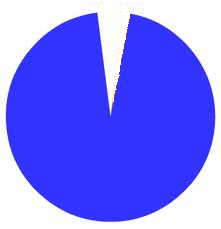Isaac Moses, the patriarch of Mi Yodeya, wrote something that caught my eye the other day:
[...] the general Stack Exchange directive, expressed in the uneditable part of that section of the About page, to "Focus on questions about an actual problem you have faced. Include details about what you have tried and exactly what you are trying to do." In fact, while this directive is perfect for the behemoth programming site that Stack Exchange grew out of, it doesn't fit very well for any of the more intellectually-oriented, rather than practically-oriented sites. [...]
This is something that's bugged me for a while, and ended up prompting a discussion between Anna, Aarthi and me. The gist of it: is there any simple test that can be used to identify answerable questions asked in good faith when the "problem to be solved" is... simple curiosity?
Obviously, this is something that sites like Movies and SciFi have had to contend with for some time, but now and then such questions pop up even on sites where folks are generally trying to solve real problems. While a potentially interesting thought experiment, you're probably not going to use a distributed hashing algorithm to pair socks next time you do the laundry.
Strictly-speaking, problems like that fail the "practical, answerable questions based on actual problems that you face" test. And yet, I would keep that question simply because I learned something useful from the answers − not necessarily something I would ever apply to socks mind you, but certainly something I might apply to similar problems. I don't believe the question was asked in bad faith or for mindless social fun; yet, I have a bit of trouble stretching the definition of "based on actual problems" to contain it.
Obviously, the fact that we're hosting a growing number of sites dedicated mostly or entirely to intellectual curiosity makes this something of a rhetorical question. The "actual problems" part of the FAQ was added specifically to draw a line between good and bad subjective questions − heading off fantasy battles and their ilk.
But it's a pretty damn good litmus test, and if it's ok to ignore it for some questions − or particularly for every question on a site − then what should stand in its place?




My goal is to read the answers to this question, and in doing so expand my knowledge and understanding of all the tools of our profession.